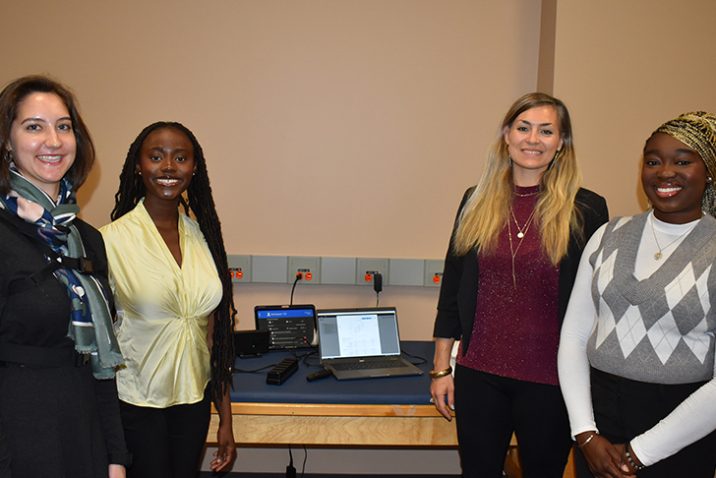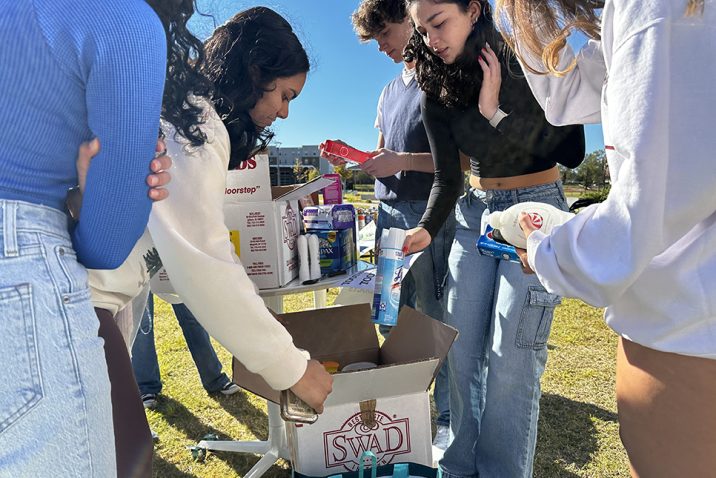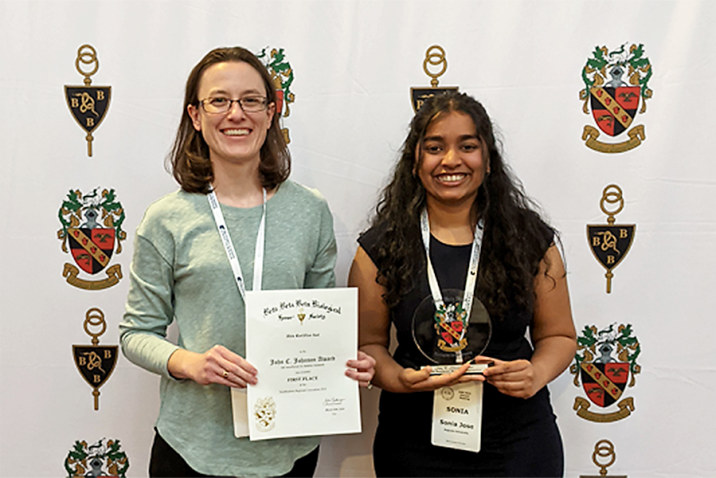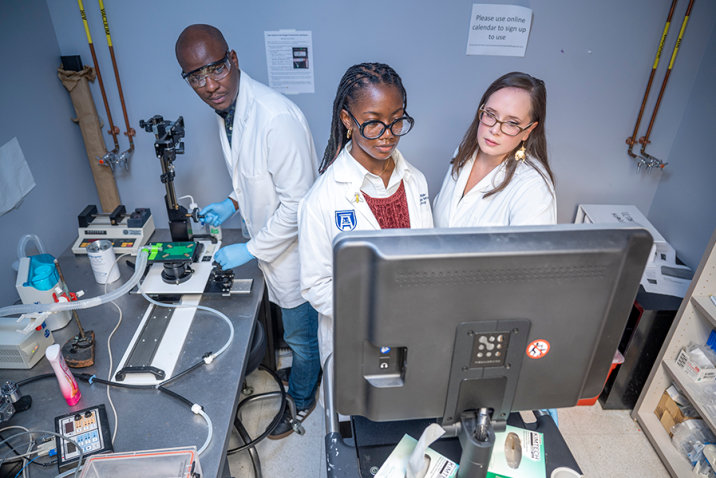AU undergraduate research team selected to participate in national program
“Learning to communicate and advocate for your research effectively is such an important tool as a researcher and can lead to valuable change,” says Quentin Davis, PhD.
Are you looking to go into medical school? Dental school? Another health sciences program? Then a Bachelor of Arts in Chemistry might be the program for you.
Paired with a second major in biological science, social science or liberal arts, a BA in Chemistry can make you an attractive candidate for any number of graduate and professional programs. The Chemistry program from the College of Science and Mathematics’ Department of Chemistry prepares students for a variety of career pathways.
A Chemistry degree from Augusta University offers an experience like no other, with on-campus opportunities to continue your education.
Chemistry is for you if you consider yourself
What You'll Study
In the Bachelor of Arts in Chemistry program, you’ll take basic classes for science majors before moving into your major classes, where you’ll choose from among traditional areas like biochemistry, organic chemistry and inorganic chemistry and specialty areas like forensic chemistry, nuclear chemistry or medicinal chemistry. You’ll also be required to complete a minor or secondary major to demonstrate strong interdisciplinary preparation.
Experience-based Education
The Center for Undergraduate Research helps match students to faculty research, hosts professional development workshops and offers funding assistance twice a year to support faculty-led student research.
An updated list of external fellowship and scholarship opportunities helps you find those connections that can make a positive difference in your academic or professional career.
On-campus funding to support student research can lead to peer-reviewed publication and grant proposals — things that get you noticed by employers and graduate programs.
Whether you’re an undergraduate or graduate student, you’ll have opportunities to create your own research projects or work with faculty to tackle some of the world’s most complex and pressing challenges.
A new, state-of-the-art building with 22 teaching labs, a tutoring center and a top floor dedicated to research is located on the Health Sciences Campus, maximizing educational and research opportunities.
The College of Science and Mathematics’ living learning community helps incoming freshmen thrive during that critical first year of college by offering a supportive network of like-minded students and plenty of engagement opportunities.
A tutoring center specifically for science and math students is located on the Health Sciences Campus, with similar help also offered at the Academic Success Center on the Summerville Campus.
Your Future
Graduates with a Bachelor of Arts in Chemistry typically use their degree as a stepping stone to graduate or professional programs in medicine, health sciences or for dental school, providing a wide range of exciting and meaningful career options.

Learning Like No Other
A new building in the heart of the Health Sciences Campus puts Chemistry students in the middle of the university’s research enterprise, maximizing opportunities for internships and mentorships.
A full range of student support services exist to make sure that students have the opportunity to find assistance, advice or mentorship.
Easy access to faculty ensures students receive the individual attention and mentorship opportunities they need to help them stand out when moving into their careers or on to the next academic challenge.

“Learning to communicate and advocate for your research effectively is such an important tool as a researcher and can lead to valuable change,” says Quentin Davis, PhD.

Three students collected 200 pounds of items and more than $300 that they used to purchase more supplies.

“This undergraduate research experience has inspired me to specialize in oncology and dive deeper into understanding cancer,” said Sonia Jose.

“The collaborative nature of AU has been so important in progressing our research and everything that we do," said Briah Bailey.